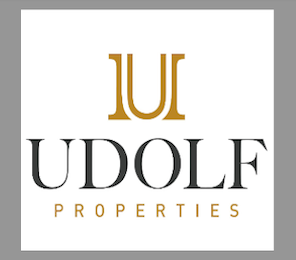Dr. Charles Asher Small has dedicated his life’s work to mapping and decoding what he calls the “crisis of modernity” that is anti-Semitism.
Director of the Institute for the Study of Global Antisemitism and Policy (ISGAP), Small is also the Koret Distinguished Scholar at the Hoover Institution, Stanford University. ISGAP runs seminar series at several top North American universities, as well as the Sapienza University of Rome. Small was founding director of the Yale Initiative for the Interdisciplinary Study of Antisemitism (YIISA), the first research center of its kind established at a North American university. Yale dissolved the program in 2011, six years after YIISA was launched, and opened Yale Program for the Study of Antisemitism in its place.
Small has lectured internationally and worked as a consultant and policy advisor in North America, Europe, Southern Africa, and the Middle East. As a scholar, he specializes in social and cultural theory, globalization and national identity, socio-cultural policy, and racism, including anti-Semitism.
The situation in France is a unique convergence of traditional western European antisemitism melded with Islamic anti-Zionism. But it is also a microcosm of the international climate, Small says.
“There is a segment of the Muslim population who come from countries in which anti-Semitism is an acceptable religious and political view,” he says. “Studies show that Muslim migrants have a much higher level of antisemitism than the average population. In the Middle East and even in France, the popular religious ideology is openly and clearly anti-Semitic – anti-Israel, anti-Zionist, and anti-Jewish, and they don’t distinguish between the three.”
On the other hand, the liberal sector is silent where it counts. “There are people who claim to be liberal and in favor of the rights of women, gay people, and minorities,” Small says. “But their political concern appears to only count in their social networks and milieus and maybe in their own countries.”
The effort to decimate human rights is that of radical political Islam, Small says. “Subjugating women, killing gays, inciting to exterminate the Jews – never mind targeting the girls who want to learn and be literate, which is a sin according to these Islamists. Liberalism is about equality under the law, strong citizenship, and institutions that operate in a democratic manner. What passes as liberalism today, in my view, is a hypocritical position: to be liberal in the finer institutions in Europe, and especially in the U.S., means to be silent and not speak out against the barbaric human rights violations of this movement. We’ve given up the struggle to stand for those values – political and policy.”
And therein lies the extreme danger, Small says. “This gives the space for anti-Semitism to grow and once the disease is allowed the space to grow, we know that it begins with Jews but never ends with Jews,” he says.
In January, a “Day of Anger” demonstration against Francois Hollande’s economic policies saw some 17,000 white supremacists and fascists marching through the streets of Paris, along with African and North African Muslim men, yelling, “Jew, France is not for you.”

An aliyah (immigration to Israel) information fair in central Paris on March 30. Credit: Alain Azriall
Last month, Paris was the site of the 31st congress of the Union of Islamic Organizations in France, the country’s largest Islamic event. Speaker Hani Ramadan, an imam based in Switzerland, was quoted by sociologist Michele Tribalat as saying, “All the evil in the world originates from the Jews and the Zionist barbarism.”
“This conference was basically run by the Muslim Brotherhood, a party received positively by the Obama Administration in Egypt and seen as an integral part of pushing notions of democracy onto that country,” Small says. “But the conference became a hate-fest against the Jews, in the center of Paris, the society that brought us the Enlightenment. Today, political leaders need to wake up to the fact that enlightenment and democracy and notions of citizenship and equality are values we must protect. This is not only about the Jewish community, but people who care about democracy, the rights of women, gay people, and minorities, and human decency ought to take notice and of the damage being done.”
Anti-Semitism may be more deeply rooted in Europe than in other regions of the world, Small says, with the charge of dual loyalty floating on the air for decades.
In France, the second Intifada in 2000 unleashed a major wave of anti-Semitic public opinion, painting Israel as a monstrous Nazi regime intent on murdering children. Rhetoric devolved into physical violence, with most acts perpetrated by French citizens from Muslim Arab and sub-Saharan African immigrant backgrounds. The attacks went unreported by media or public authorities for several months, with pleas for help from the Jewish community unheeded. When they did respond, some media outlets opined that the violence was understandable, in light of events in the Middle East and the policies of the Israeli government.
This is the “new” anti-Semitism, Small says – no longer race- or religion-based, but an attack on the Jewish people’s connection to the land of Israel.
Now, the Jewish community is monitoring people who are stockpiling ammunition, ostensibly for use in attacks on Jews. A very high percentage of French and other European Jews don’t see their future in Europe and are preparing to leave. In addition to Montrealers, residents of Jerusalem, Netanya, and parts of Florida are hearing more French in the streets.
Small defers to Prof. Shmuel Trigano, the Algeria-born Jewish sociologist and philosopher on faculty at Paris University. Trigano is also director of the College of Jewish Studies of the Alliance Israélite Universelle and president of the watchdog organization, Observatoire du Monde Juif, both based in Paris. A prolific author, Trigano explores Jewish philosophy and Jewish political thought, and the Jewish experience in Arab countries, fueled by his own family’s expulsion from Algeria. An expert on French-Jewish history, Trigano widened his scope in his last book, L’avenir des Juifs de France (“The Future of the Jews in France”), published by Grasset in 2006, and in recent articles and interviews.
“Shmuel tells me that he’s been writing all these books on anti-Semitism, trying to change perspectives and policies,” Small says. “But now there’s no more room to do so in academia and government; antisemitism is on the streets and you just have to protect your home and your synagogue.”
Comments? email cindym@jewishledger.com.
Conversation with…Prof. Maurice Samuels
By Cindy Mindell
NEW HAVEN – Maurice Samuels is the Betty Jane Anlyan Professor of French and director of the Yale Program for the Study of Antisemitism (YPSA). A graduate of Harvard University, he specializes in the literature and culture of 19th-century France and in Jewish studies. His second book, Inventing the Israelite: Jewish Fiction in Nineteenth-Century France (Stanford University Press, 2010), brings to light the first Jewish fiction writers in French. It won the Scaglione Prize, given by the Modern Language Association for the best book in French studies. He is currently co-editing a Nineteenth-Century Jewish Literature Reader and working on a new book on the relationship of anti-Semitism and philosemitism in France, from the French Revolution to the present. He has also published articles on diverse topics, including romanticism and realism, aesthetic theory, representations of the Crimean War, and boulevard culture.
Samuels offered the Ledger a historical perspective on the modern-day condition of Jews in France.
Q: “On one foot,” how would you describe the history of French Jewry?
A: The history of Jews in France is a complex one. Periods of great openness toward the Jews alternated with terrible persecution. It’s important to keep both sides of the picture in mind.
France was one of the main centers of medieval Jewish life, but King Charles VI expelled the Jews definitively in 1394. Technically, no Jews were allowed in France until the Revolution, but there were exceptions: a community of several thousand Sephardic Jews who fled the Inquisition gained permission to settle in and around Bordeaux; about 30,000 Ashkenazic Jews lived in the Eastern provinces of Alsace and Lorraine, which became part of France in the 17th century; and small communities existed in the papal states of Provence. Paris also had a clandestine community of several hundred Jews, mostly from these other centers. During the Old Regime, while the Sephardim of the Southwest achieved a level of social, economic, and cultural integration, the Ashkenazic Jews in Alsace and Lorraine faced numerous restrictions and persecutions – they couldn’t live in cities, own land, join guilds, etc. They mostly spoke only Yiddish and lived traditional, Orthodox lives, much like their coreligionists in Eastern Europe.
All this changed at the end of the 18th century. During the Revolution, France became the first European country to grant the Jews full citizenship, in two separate decrees – 1790 for the Sephardim and 1791 for the Ashkenazim. During the 19th century, French Jews enjoyed greater freedom than Jews in any other country. Jews in England could not sit in Parliament until the 1850s. Jews in much of Germany did not gain full emancipation until 1870. Even in America, Jews were restricted from holding public office in certain states until the late 19th century. In France, the Jews faced no legal obstacles to full equality. Jews attended the top universities, joined the liberal professions, and even attained high rank in the army beginning early in the 19th century.
While the 19th century was a kind of “golden age” for French Jews, this began to change in the 1880s with the rise of a new, virulent form of racist and nationalist anti-Semitism. Edouard Drumont’s 1886 book, Jewish France, became a national bestseller. In the 1890s, the Dreyfus Affair, in which a Jewish officer was falsely accused of treason, divided the nation. But while the Affair led to an outpouring of anti-Semitism throughout France (and even in colonial Algeria), it’s important to recognize that half the country rallied to the defense of Dreyfus, including the nation’s most famous writer, Emile Zola. Eventually the supporters of the Jewish officer triumphed.
In the 20th century, we see the same ambivalence toward the Jews. On the one hand, Jews continued to play a leading role in French economic, cultural, and political life. Many of France’s most celebrated writers (Marcel Proust), artists (Camille Pissarro), philosophers (Henri Bergson), actors (Sarah Bernhardt), and musicians (Serge Gainsbourg) were of Jewish origin. Beginning with Léon Blum in 1936, France had five prime ministers of Jewish origin – more than any other country (except Israel). On the other hand, strong strains of right-wing anti-Semitism continued to exert an influence. After the Nazi invasion in 1940, the collaborationist government established in Vichy persecuted the Jews, often going beyond what the Germans demanded. During the Holocaust, 76,000 out of the roughly 350,000 Jews living in France were deported to Nazi death camps. Only 2,500 returned. Many of those killed were foreign-born Jews who had sought refuge in France, while the native-born French Jews survived in higher numbers, thanks in part to the many French people who hid or saved them.
After the war, the French Jewish community rebuilt itself and eventually thrived. Indeed, France is the only European country to have a bigger Jewish community today than it had before World War Two. It numbers around 600,000. Many of the Jews in France today come from Sephardic families who were displaced – or expelled – from North Africa following decolonization.
Q: Re: modern-day anti-Semitism in France, where did it come from? Is it a resurgence of an old hatred or something new, and how does it compare to past manifestations?
A: Since the start of the Second Intifada, France has seen a dramatic rise in attacks on Jews and Jewish property. This “new anti-Semitism” derives from different sources than the traditional, right-wing anti-Semitism, which was nationalist, racist, and xenophobic. The main perpetrators of violence against Jews in France today are young Muslim men. The French refer to them as “issued from immigration” to denote that their parents or grandparents came from France’s former colonies in North Africa. Many of them live in disadvantaged housing projects on the outskirts of France’s major cities and are themselves the victims of racism and xenophobia. Some scholars speculate that these young people see the Jews as a minority that has achieved success and resent them for it. Without a doubt, the flames are fanned by the conflict in the Middle East. In March of 2012, when Mohammed Merah, who was of Algerian descent, murdered three Jewish schoolchildren and their teacher in Toulouse, France, he told reporters he was avenging his “brothers” in Palestine.
And yet, in some ways, this “new antisemitism” is not really all that new. Many of the same stereotypes of Jews controlling the financial markets and the media that formed the basis of the “old” anti-Semitism persist today. The gang calling themselves “The Barbarians” that kidnapped, tortured, and killed a young Jewish man named Ilan Halimi in 2006 said they did so because they assumed all Jews were rich.
It’s important to recognize that the situation today does not resemble 1942. We are not in the middle of another Holocaust. For one thing, the French government has been very strong in its condemnation of anti-Semitic violence. Laws exist that criminalize hate speech and Holocaust denial. The vast majority of French people are not anti-Semitic. While some Jews in France are definitely under threat – it has become dangerous to wear a kippah in certain neighborhoods; Jewish children in certain schools face regular aggression – most French Jews do not live in fear. Of course, we must continue to watch the situation carefully and to pay close attention to all incidents of violence.
Q: The number of Jews making aliyah from France grew by 300-plus percent from December 2013 to March 2014, with Jewish organizations urging Jews to leave France. Is emigration leveling off or do you think it will continue?
A: I recently read that aliyah from France has increased dramatically in recent months: 854 immigrants in the first two months of 2014 alone, according to the report I read. This is no doubt partly in response to fears of anti-Semitism. My feeling is that religious Jews especially have been leaving France for Israel. France’s many assimilated, secular Jews are probably more likely to leave for London or New York in search of economic opportunities – a trend that has been affecting young, educated non-Jews as well in recent years.
Q: France has, at best, a mixed record on its Holocaust-era policies, described by some scholars as the “French Paradox.” Is there any public discourse on that history, in light of what is happening today?
A: There is a lot of public discourse on the Holocaust in France. Indeed, the historian Henry Rousso – who visited the Yale Program for the Study of Antisemitism last year – has coined a term, the “Vichy Syndrome,” to refer to France’s obsession with its wartime history. Every year sees dozens and dozens of books and films relating to the Holocaust. There are frequent commemorations. In 1995, President Jacques Chirac officially recognized France’s responsibility in the murder of Jews during the war, which was a real turning point in the official discourse.
I do not see any equivocation today on the part of the French government relating to the Holocaust or its memory. Teaching the Holocaust has been mandated in French public schools. Some scholars have argued, however, that this policy has backfired, that it has bred resentment in certain segments of the population. Many experts believe that more teaching about the Holocaust is not the answer to the current rise in anti-Semitism, that the real solution lies in expanding economic opportunities for disaffected youth and fostering their social integration.
Comments? email cindym@jewishledger.com.







 Southern New England Jewish Ledger
Southern New England Jewish Ledger
















